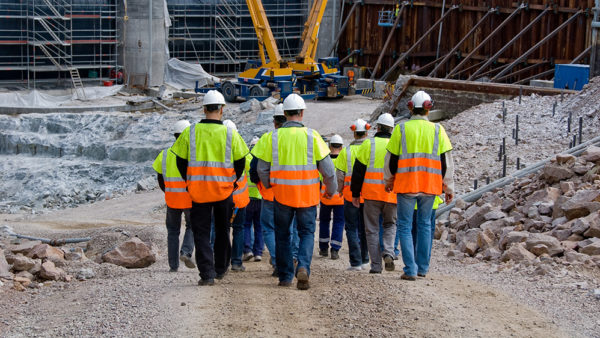
The CIOB is paving the way for the next generation of construction leaders to be heard, writes Caroline Gumble.
“Many in our industry already show leadership on driving diversity and inclusion – the CIOB Equality, Diversity and Inclusion Charter is also an opportunity to promote what you are doing.”
You may have seen in last month’s CM a thoughtful piece from Scape on steps the construction industry must take to be more inclusive. I’ve made the case for diversity and inclusivity on many occasions. I sense that we now have some momentum in improving how we recruit, given the wide acceptance that our industry needs new recruits and that we must attract the best talent.
As a priority, that means expanding the pool of talent to bring in more women, people from ethnic minority backgrounds, people with disabilities and other under-represented groups.
As part of the CIOB’s journey, we have been working with our members, sister professional bodies and across the industry to promote inclusion and play our part in enacting positive change.
“In short, the charter can help an employer build its reputation as being a business that is socially aware and conscious of its impact.”
I’m pleased to announce that we are now preparing to launch a CIOB Equality, Diversity and Inclusion (EDI) Charter, to stand alongside the Action Plan published earlier this year. The charter has been created to be practical, outlining behaviours we can all work towards to make our industry more inclusive. It offers a direction of travel, recognising that we are all at different points on this journey.
When the charter, and the accompanying Special Report, are published in a few weeks, I would like to encourage all employers in the sector to sign up to it, to help make a difference.
I know many in our industry already show leadership on driving diversity and inclusion – the charter is also an opportunity to promote what you are doing and show your commitment to helping make the industry a more attractive place to work. It sends a clear message, not just to your existing employees, but to potential future recruits and clients too.
In short, the charter can help an employer build its reputation as being a business that is socially aware and conscious of its impact.
I’m also mindful of the fact that the majority of construction companies are SMEs – the charter has been created for use by any size of business. By signing up, a company is saying we want to do more, whatever the starting point, and we are in the company of others who feel the same.
My thanks to Scape and to Willmott Dixon for supporting us in this piece of work and for their encouragement in keeping diversity and inclusion on the agenda.











